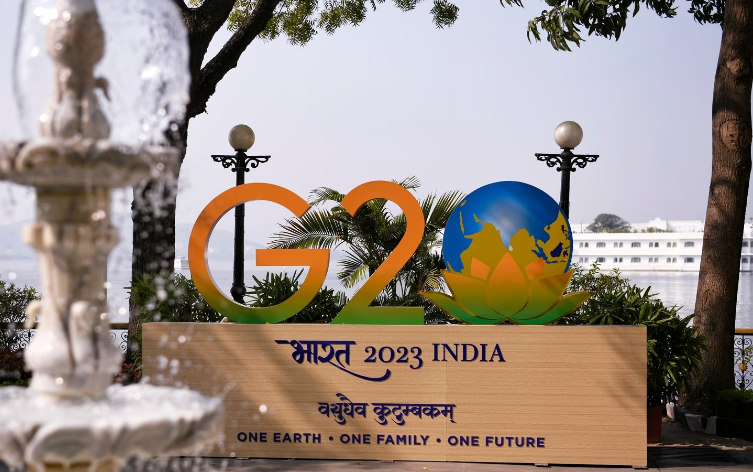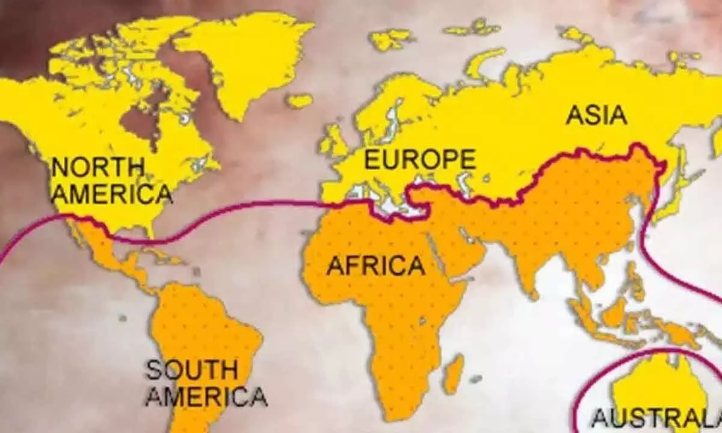
In the days and weeks leading up to the September 9-10 G20 Summit in New Delhi, expectations could not have been lower. In fact, the consensus among the negotiators from the world’s biggest economies, who had been holed up in a resort outside New Delhi for days, was that the world’s most high-profile multilateral platform was likely to, for the first time in its history, conclude without a declaration.
A failure by the G20 to come up with a declaration would have been damning for a grouping already under enormous stress following Russia’s war in Ukraine. The previous summit, in Indonesia in November 2022, was marked by sharp geopolitical divides. A year on, those divides had only widened.
In the final event, negotiators working overnight were able to arrive at a last-minute compromise barely hours before the summit opened. That the G20 emerged intact after New Delhi owes, in large part, to the key role played by members of the Global South in forging a fragile consensus between, on the one hand, the West, which had called for strong condemnation of Russia, and on the other, the China-Russia combine, which had opposed it.
What finally broke the stalemate – and, it could perhaps be argued, what saved the future of the G20, at least for now – was a joint initiative by the leaders of four Global South countries – and incidentally, the successive G20 hosts from 2022 until 2025, which are Indonesia, India, Brazil and South Africa, respectively. They were able to persuade the G7 bloc (Canada, France, Germany, Italy, Japan, the U.K. and the U.S.) to accept watered-down language on Ukraine. The compromise formula did not mention Russia’s aggression, as Moscow and Beijing demanded, but at the same time, the declaration also added several new paragraphs to the Bali Declaration of 2022, that underlined in strong language the very serious economic ramifications faced by the developing world as a direct result of Russia’s actions. Moreover, for the West, agreeing to this formula averted the prospect of dealing what may have likely been a fatal blow to the relevance of what has been the world’s most important multilateral platform for global issues.
An inflection point
As the dust settles from New Delhi, what is now clear is that the summit marked an inflection point in the evolution of an increasingly divided G20. India last year assumed the presidency of the G20 in arguably the most challenging period in the group’s recent history, as the world navigated a continuing global economic crisis, the spill-over impacts of both Ukraine and a slow post-pandemic recovery, and the lengthening shadow of geopolitics over global economic cooperation.
The geopolitical divide certainly made itself felt in New Delhi, with three clear groupings emerging within the G20 itself. On one side of the spectrum was the G7, along with the EU and American allies Australia and South Korea, and on the other end were China and Russia. In the middle of this divide were “the rest”, which included the four-nation combine that played a key role in saving the summit in New Delhi – India, Indonesia, Brazil and South Africa – as well as Argentina, Mexico, Saudi Arabia and Turkey.
The “rest” is by no means a distinct bloc given their varying geographies, political identities and strategic interests, and their unity as such should not be overstated. Yet what does bring together this seemingly disparate grouping is their location in what may loosely be termed the Global South and the growing desire for much of this part of the world to not be caught in the middle of the geopolitical divide between the U.S.-led West and the deepening China-Russia axis, as they seek solutions for the serious economic problems that many of them are confronting in their own countries.
This desire to tread an independent path, which to some extent reflects this group’s ideological origins in the Non-Aligned Movement of the 1960s, has led to growing momentum for the Global South to have a seat at the high table through a greater voice in multilateral platforms. The G77, which met in September in Havana, is one such forum. The landmark decision to expand BRICS (the Brazil, Russia, India, China, South Africa grouping) through the addition, at the August summit in Johannesburg, of Argentina, Ethiopia, Iran, Saudi Arabia, Egypt and the United Arab Emirates – seven of this new BRICS-Plus combine are, incidentally, G20 members – is also indicative of this new momentum.

The Legacy of New Delhi
In what was a major victory for the Global South and its effort to have its voice heard, the 55-nation African Union (AU) joined the G20 as its 21st member. The AU will now become only the second regional bloc in the G20 after the EU, and both summit host India, and AU Chairperson Azali Assoumani, President of Comoros who was invited to the summit, hailed the accession as a landmark moment for the developing world.
The accession of the AU will likely be the New Delhi summit’s most important legacy. At the summit, Brazil President Lula da Silva pledged that next year’s summit will also continue to keep the focus squarely on economic issues, especially those relevant to the Global South. In the lead-up to New Delhi, India made it a point to canvas views from Global South countries by convening a gathering of 125 countries in a “Voice of the Global South” summit, a practice that might be followed by the next two G20 hosts, Brazil and South Africa.
Another important takeaway reflected in the New Delhi Leaders’ Declaration is the push for what it described as a “revitalized multilateralism to adequately address contemporary global challenges of the 21st Century, and to make global governance more representative, effective, transparent and accountable”. The declaration laid out a roadmap for reforming international financial institutions to ensure that “an international development finance system that is fit for purpose, including for the scale of need and depth of the shocks facing developing countries, in particular the poorest and most vulnerable.” What the Global South countries are pushing for, as reflected in the declaration, is improving responsiveness and accessibility and “substantially increasing financing capacity to maximise development impact.”
On climate change, which emerged as another key point of difference between the West and the rest, particularly on the issue of climate financing, the G20 yielded a consensus on the need for a substantial jump in support from the West in enabling mitigation and adaptation strategies for the developing world. The New Delhi Declaration noted the need for $ 5.8-5.9 trillion in the pre-2030 period for developing countries, in particular for their needs to implement their Nationally Determined Contributions (NDCs), as well as the need for a further $4 trillion per year for clean energy technologies by 2030 to enable net zero emissions by 2050. These are demands that the Global South grouping will forcefully take to the CoP 28 summit in the UAE in November.
Challenges
For the Global South, taking forward these tentative points of consensus will not be without its challenges. Beyond the difficulties in finding a common minimum agenda for an extraordinarily diverse grouping with varying interests, navigating geopolitical differences remains perhaps the biggest challenge of them all. Russia’s war in Ukraine continues to disrupt and divide. More broadly, the increasing China-U.S. geopolitical contest exerts a lengthening shadow that, many countries of the Global South fear, will push them into a position they do not want – of having to choose sides.
Even within the Global South, geopolitical contestations may derail the ability to forge a consensus on economic issues. Two of the biggest powers of the Global South, China and India, are currently in the most challenging period of their ties since the normalisation of relations in the 1980s.
Since then, India and China have done remarkably well to shelve differences on the unresolved boundary question and take forward cooperation in other areas, such as trade and closer coordination on multilateral issues, where they often share a common position. Ties, however, are now in uncharted waters, and the border crisis along the Line of Actual Control (LAC) enters, next year, its fourth year. In this context, separating an increasingly strained bilateral equation from the two countries’ efforts to find areas of cooperation on multilateral issues will become an ever harder task. Both were, however, able to do so to some extent within the umbrella of the G20 this year, which Indian negotiators acknowledged publicly at the summit.
These challenges aside, the New Delhi Summit will likely be remembered for the emergence of a diverse grouping finding its voice. Indeed, that the G20 lives to fight another day is in no small measure due to the key bridge-building role played by countries seeking to find their own space, against a backdrop of intensifying global geopolitical contestations.